On Wednesday, May 25, the second main event of Microsoft's annual developer conference was staged, with Microsoft's Chief Product Officer Panos Panay taking the stage to demonstrate to the world the "Windows operating system that will shape the future".
Standing in the audience, Panay played the Windows Copilot demo video that Microsoft CEO Nadella showed yesterday again. In front of an expressionless audience, Panay said, "It's very natural for this room to use AI, Bing, ChatGPT, but for many more people, they've just heard of it, just like when we were trying to understand what the Internet was."
For these users, they have no idea what settings or features Windows has, and it's not natural for them to give commands to the AI. That's why Microsoft's Windows Copilot not only responds to users' needs, but also proactively speculates on what features they might want and proactively offers a range of options to them.
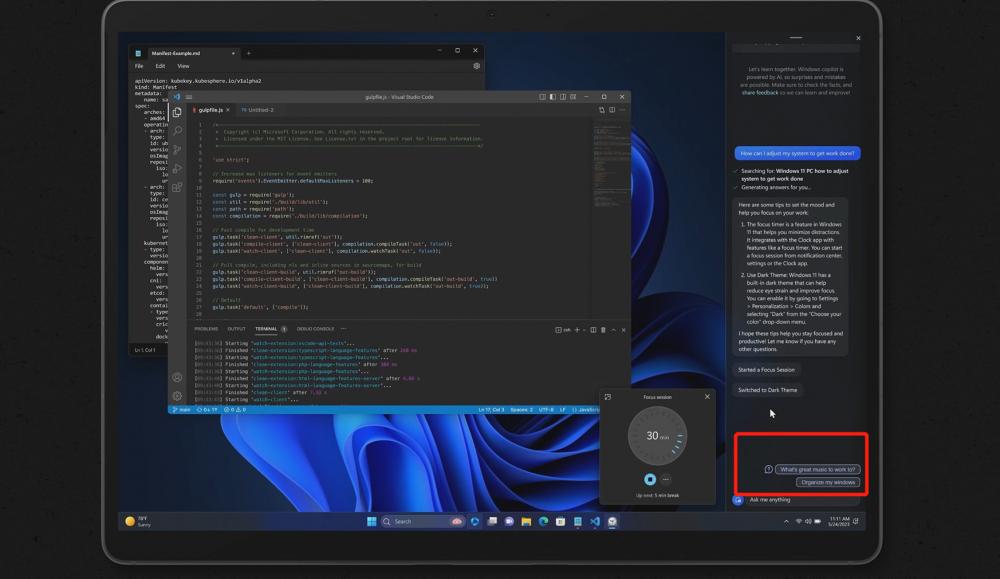
(Note the prompt box in the lower right corner, source: live video)
Another example is that users can select a text in Notepad, send it to Windows Copilot, and then the AI will proactively ask if they want to "explain", "rewrite", or "summarize The next step is for the AI to ask if it wants to "explain," "rewrite," or "summarize" the passage.
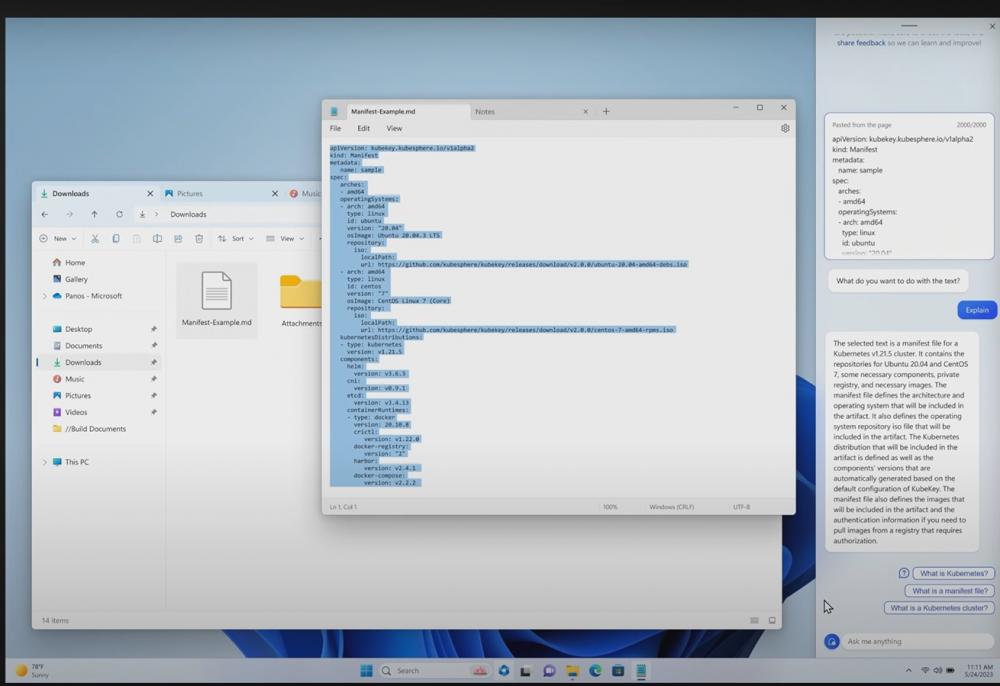
(Source: live video)
The same applies to audio. The user can drop the recording into the sidebar and ask the AI to transcribe the text and translate it, etc.
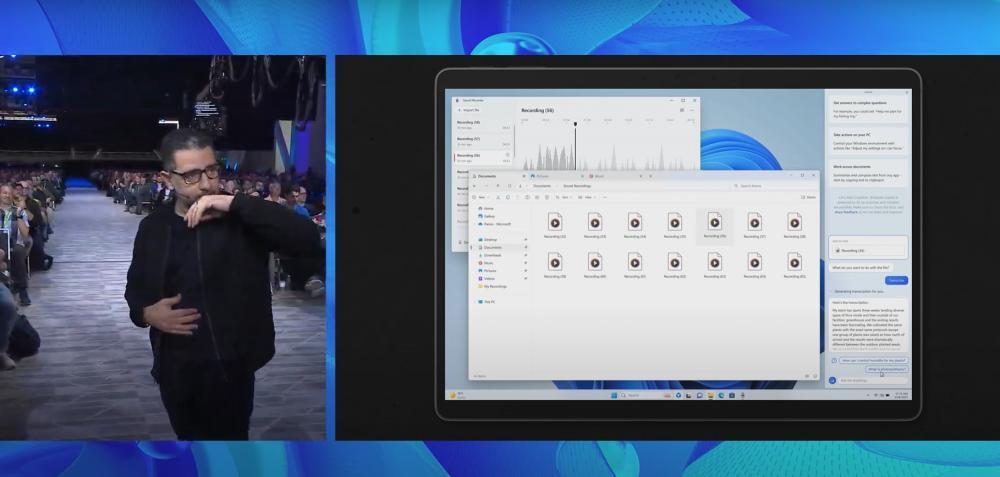
(Source: live video)
Of course, this is just the beginning for AI to reshape the narrative of human use of computer systems.
Panay emphasized that Microsoft has been talking about various plug-ins for the past two days, and the Windows in front of you is the platform that enables the most difficult AI applications. For developers, that day is near, and Windows Copilot will appear on the preview version of Windows 11 in June.
The Internet giants, who have always had a keen sense of smell, have long started a new round of layout. Panay introduced, including Spotify, Snapchat, Facebook Messenger a host of software, have entered Microsoft's PC application store. To know these software in two years ago, are only mobile applications. Now people can put their phones in their pockets and continue their workflow with just their computers, and now AI brings even more possibilities.
Will Cathcart, director of Meta's instant messaging app WhatsApp, also appeared at Wednesday's conference. WhatsApp, the world's No. 1 messaging software, is working with Microsoft to deliver a new communication experience for large-screen devices. Along with improved arithmetic, the PC version of WhatsApp will be able to offer features such as background blur in video calls.
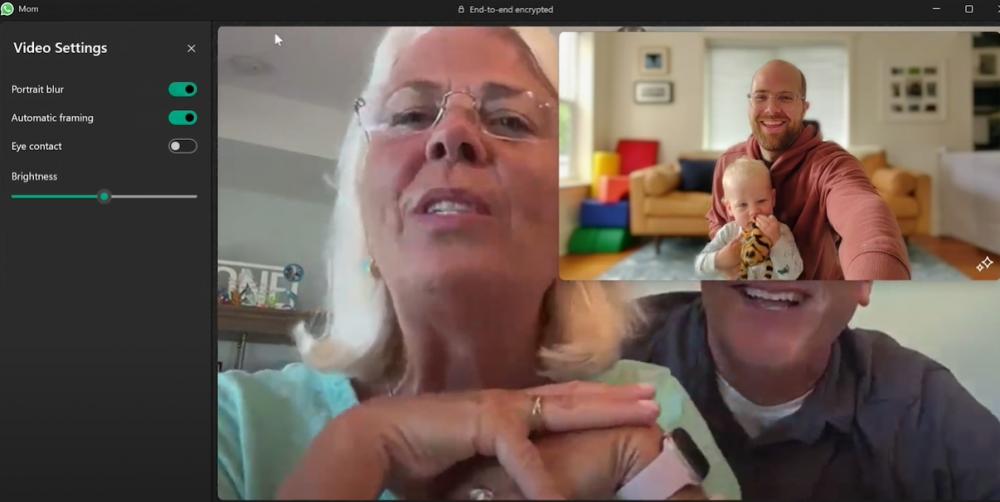
(Source: Live video)
For developers, who are very important to the AI application ecosystem, Microsoft also released Dev Home, a developer control center, this week. Simply put, this tool helps developers more easily set up and use Windows for software development work, including setting up development environments for machines, connecting to GitHub and related repositories, installing tools, and more. As a Microsoft product, this tool naturally integrates with GitHub Copilot, which "writes code, fixes bugs and writes comments".
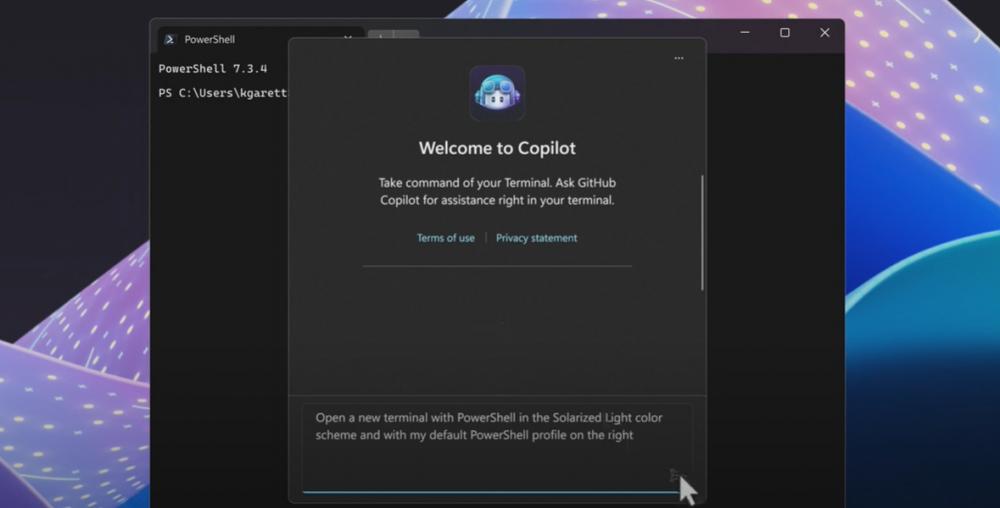
(Source: live video)
Microsoft also offers a range of tools for developers to integrate Copilot into their own software in a variety of forms.
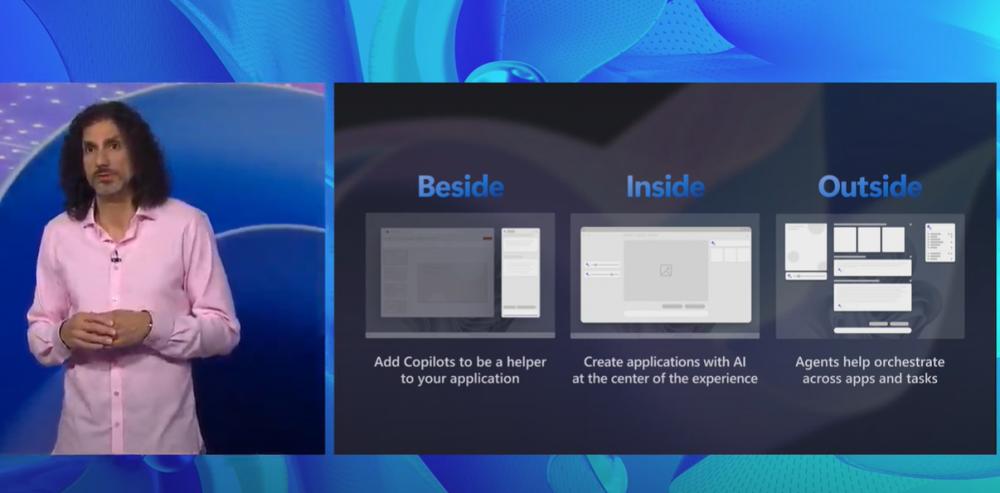
(Source: live video)
At Wednesday's event, Microsoft also announced a number of new features, including Restore, which helps users "reinstall all apps with one click" after installing a new machine, and an AI-powered summary of App Store user reviews. In addition, Microsoft will soon launch the AI Hub in the App Store to show users what a range of AI apps can do, and to inspire more people to start their AI journey.
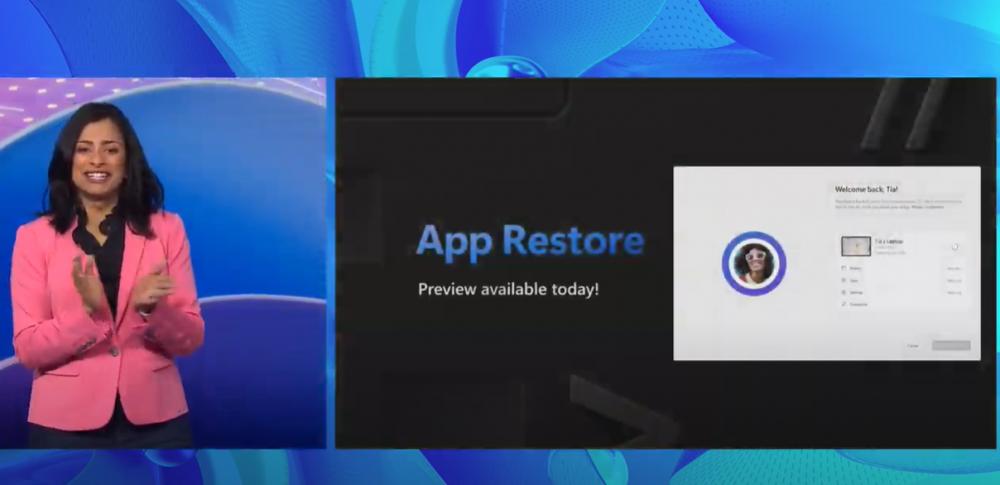
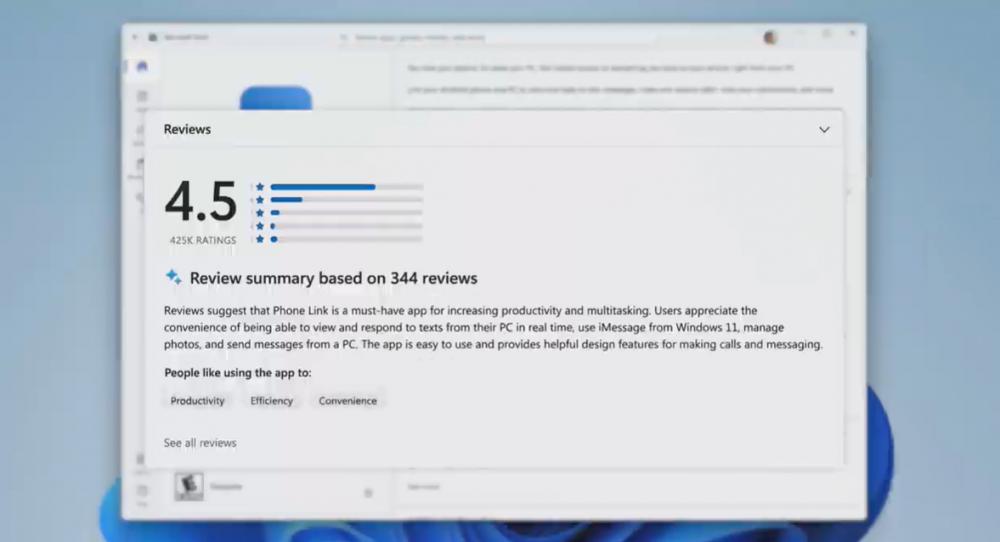
(Source: live video)
It is worth mentioning that before Panay's debut, Microsoft's product team also showed a series of new features of 365 Copilot, including Microsoft Mesh, which spans the concepts of AI, metaverse, VR, etc. Microsoft has already launched the "virtual avatar" function, using virtual images to help camera workers become more comfortable. Microsoft has previously launched a "virtual avatar" feature, using virtual images to help the camera workers more comfortable.
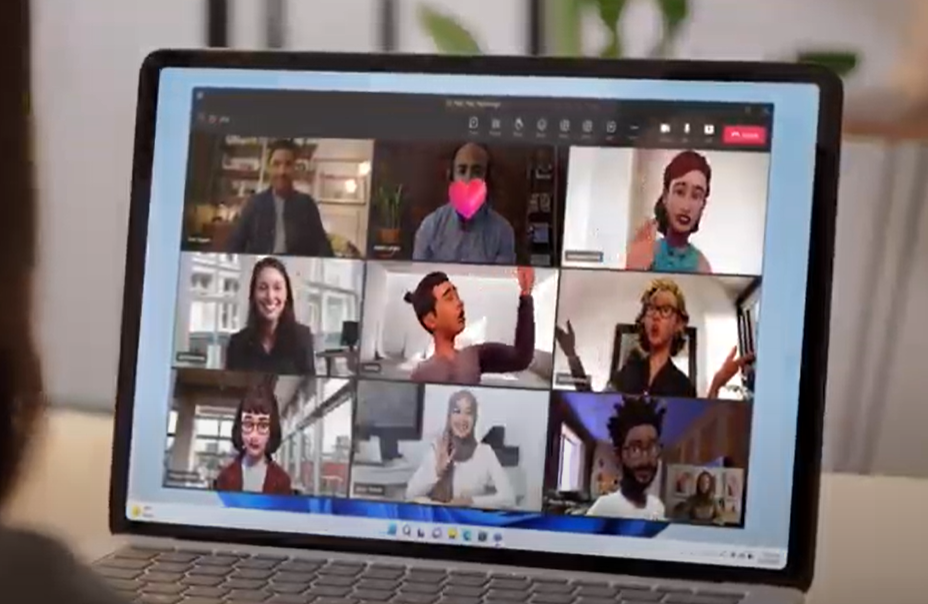
(Source: live video)
And Mesh is a step further, directly into the category of metaverse. Microsoft has also helped several famous organizations around the world to create exclusive virtual online spaces.
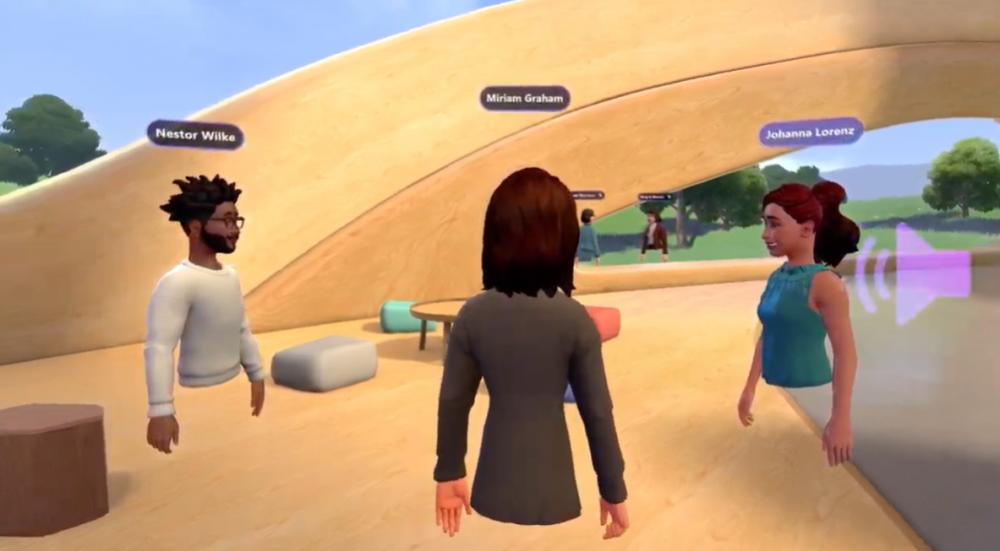
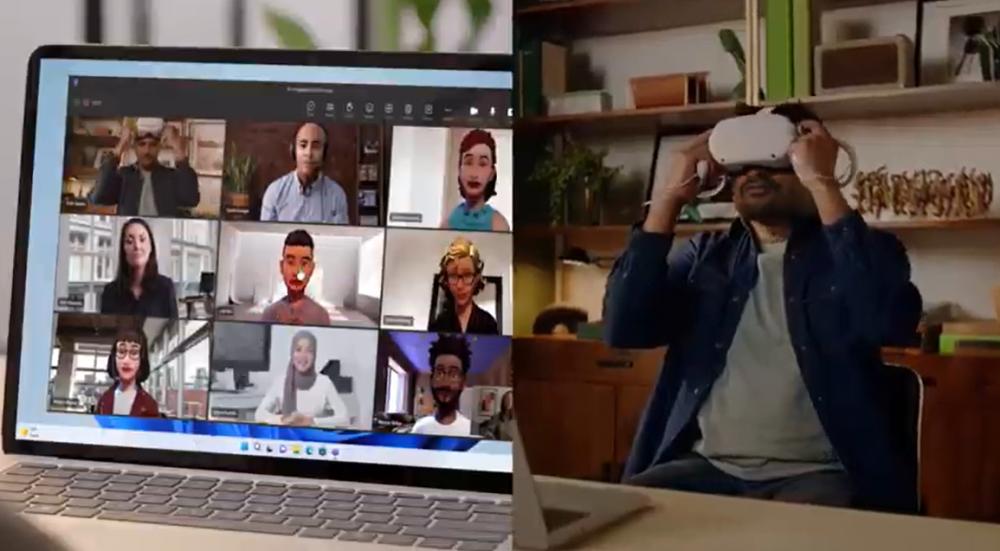
(Source: Live video)
However, like Meta's Horizon Worlds, Microsoft's "metaverse avatar" is also only half-built, which at least shows that the current level of AI is not enough to solve the problem of the metaverse being "too ugly".
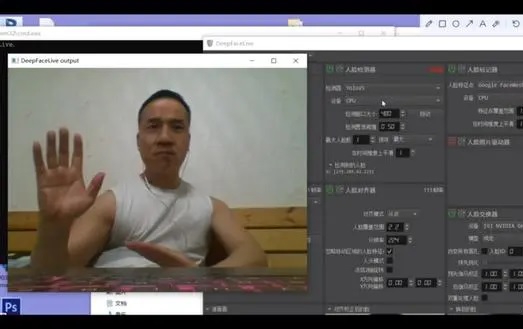

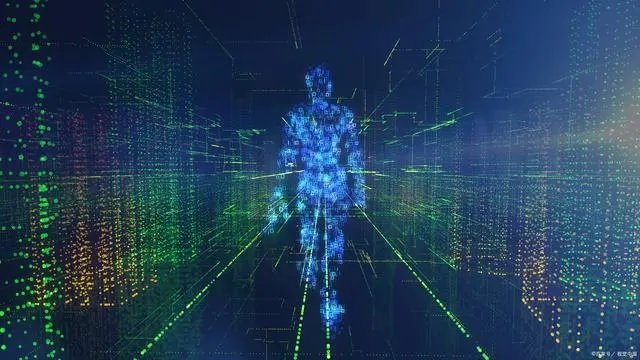
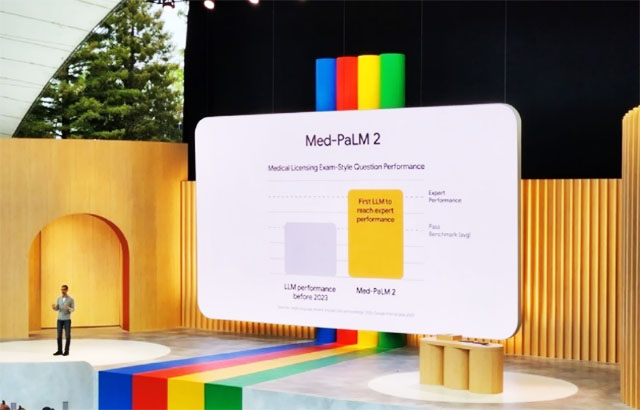

Comments28